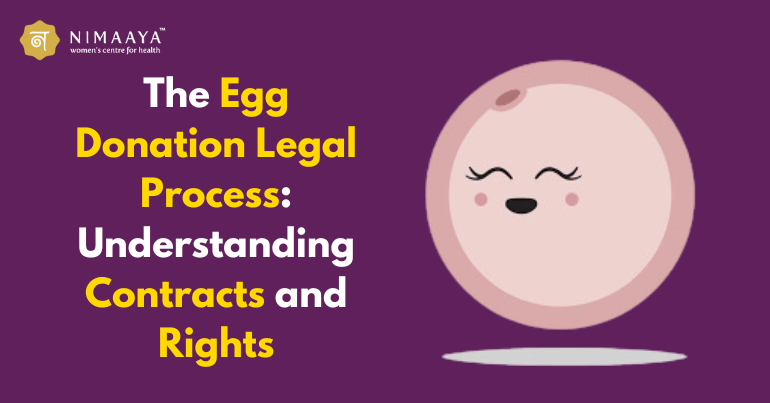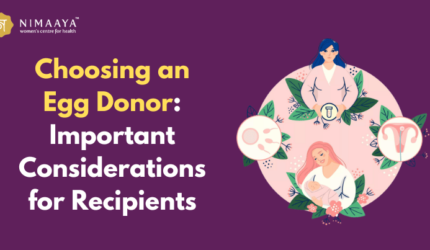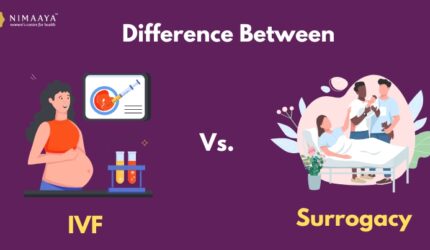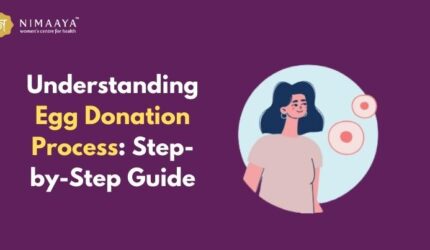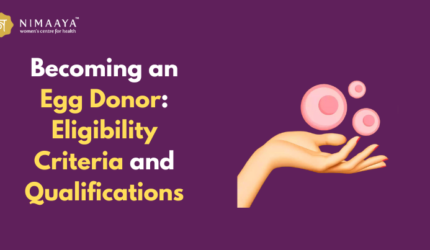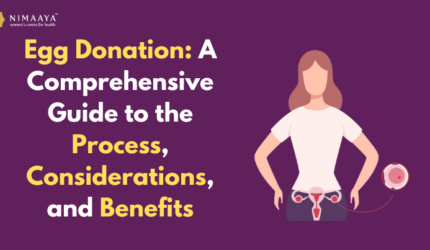Introduction
In the realm of assisted reproductive technology (ART), egg donation plays a pivotal role in helping individuals and couples achieve their dreams of parenthood. However, beyond the medical and ethical considerations, navigating the legal landscape is crucial for all parties involved—egg donors, recipients, and medical professionals alike. Understanding the intricacies of the egg donation legal process ensures clarity, protection of rights, and peace of mind throughout this transformative journey.
The Egg Donor Process
To grasp the legal complexities, it’s beneficial to break down the egg donor process step-by-step. This approach not only clarifies the medical procedures but also highlights the critical junctures where legal considerations come into play.
‣ Initial Consultation and Counseling:
Potential donors undergo an initial consultation to understand the process and implications. Legal counseling is often recommended at this stage to outline the donor’s rights and responsibilities.
‣ Screening and Agreement:
Once a donor passes the medical screening, a formal agreement is drafted. This donor agreement is a cornerstone of the egg donation legal process, detailing compensation, confidentiality, and the relinquishment of parental rights.
‣ Legal Review:
Both parties, donor and recipient, should seek independent legal counsel to review the agreement. This ensures that both parties fully understand their commitments and rights.
‣ Informed Consent:
Before any medical procedures, the donor must provide informed consent, acknowledging the potential risks and implications of egg donation.
‣ Ongoing Support and Legal Oversight:
Throughout the process, continuous legal support is crucial to address any emerging concerns or changes in circumstances.
A thorough understanding of the egg donor process and comprehensive legal guidance at each stage ensures that all parties proceed with clarity, confidence, and full awareness of their rights and responsibilities.
Also Read: Choosing an Egg Donor: Important Considerations for Recipients
The Egg Donation Process in IVF
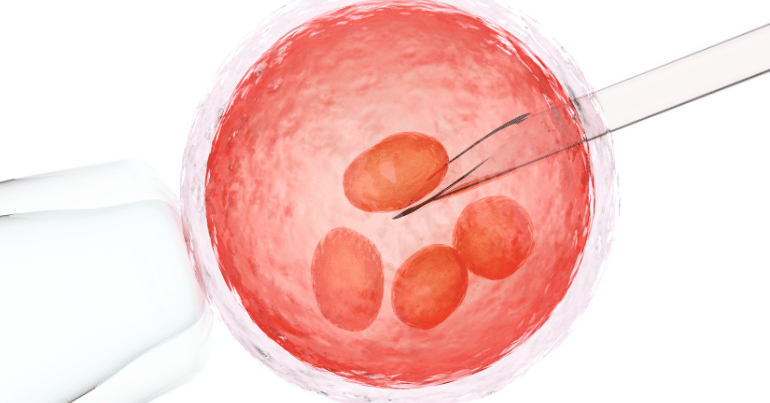
Before delving into the legal aspects, understanding the egg donation IVF process is crucial. This medical procedure involves several regulated steps: donor selection, where a suitable donor is matched based on physical traits, genetic history, and personal preferences; comprehensive medical screening to assess the donor’s suitability; ovarian stimulation using hormonal treatments to produce multiple eggs; egg retrieval through a minor surgical procedure; and finally, fertilization of the retrieved eggs with sperm followed by the transfer of viable embryos into the recipient’s uterus. Each step is meticulously overseen to prioritize the safety and well-being of both the donor and the recipient, highlighting the importance of grasping the egg donation IVF process comprehensively.
Understanding the Legal Aspects of Egg Donation
Donation of eggs is a life-changing opportunity for many individuals and couples who are unable to conceive naturally. However, navigating the egg donation legal process is essential to ensure that all parties involved are fully aware of their rights and responsibilities. Understanding the legal aspects of egg donation, particularly donor agreements and parental rights is crucial for a smooth and secure process.
‣ The Foundation of the Process – Donor Agreements:
One of the central elements of the egg donation legal process is the donor agreement. This legally binding document outlines the terms and conditions under which the donation of eggs will take place. It includes crucial details such as donor compensation, confidentiality clauses, medical procedures, and any expectations regarding the donor’s involvement post-donation.
The donor agreement serves to protect both the donor and the recipient. For donors, it ensures that their rights are respected, that they are adequately compensated, and that their identity and personal information are kept confidential. For recipients, it guarantees that they have full legal rights to any resulting embryos or children and that the donor will not have any parental claims or responsibilities. Clear and comprehensive donor agreements are vital in preventing future disputes and misunderstandings.
‣ Parental Rights:
Another critical aspect of the egg donation legal process is the clear delineation of parental rights. It is essential that the donor agreement explicitly states that the donor relinquishes any parental rights to the eggs once they are donated. This means that the donor will have no legal claim to any children born from the donated eggs, nor any responsibilities towards them.
For recipients, the agreement should establish their status as the legal parents of any children born from the donated eggs. This legal clarity is crucial to avoid any potential custody disputes or legal challenges in the future. Establishing these rights early on ensures that the recipient’s parents can proceed confidently, knowing their parental status is legally recognized and secure.
‣ An Indispensable Resource – Legal Counsel:
Given the complexities involved in the egg donation legal process, the role of legal counsel cannot be overstated. Both donors and recipients should seek the guidance of lawyers who specialize in reproductive law. Legal counsel can help draft and review donor agreements, ensuring that all legal requirements are met and that the rights of both parties are protected.
Legal counsel is also essential in navigating the various laws and regulations that differ by jurisdiction. For instance, the rules of egg donation in India may vary significantly from those in other countries, and having an expert to interpret these laws is crucial. Involving legal counsel from the outset can prevent potential legal issues and ensure that the entire process is conducted in compliance with relevant laws and ethical standards.
‣ Confidentiality and Anonymity:
Confidentiality and anonymity are significant legal aspects of egg donation. Many donors and recipients prefer to keep their identities private for various personal and ethical reasons. Legal agreements must include robust confidentiality clauses to protect the privacy of both parties. In some jurisdictions, such as under the rules of egg donation in India, anonymity is a legal requirement.
Ensuring confidentiality helps protect donors from unwanted contact or claims and allows recipients to proceed without concerns about potential legal challenges from the donor. These clauses also safeguard the privacy of any children born from the donation, allowing families to manage information disclosure as they see fit.
‣ Legal Implications – Medical and Psychological Screening:
The egg donation process involves rigorous medical and psychological screening of donors to ensure their suitability. These screenings have legal implications as they must be conducted by regulatory standards. Legal agreements should outline the screening procedures, ensuring that donors are fully informed and consent to undergo these assessments.
Screening helps protect the health and well-being of both the donor and the recipient and ensures that the donated eggs are of the highest quality. Legal counsel can help ensure that these procedures are ethically and legally sound, providing further protection for all parties involved.
‣ Ethical Considerations:
Ethical considerations play a significant role in the egg donation legal process. These include ensuring informed consent, respecting donor autonomy, and maintaining transparency throughout the process. Legal agreements must reflect these ethical principles, ensuring that donors are fully aware of what the donation entails and that their participation is voluntary.
Ethical practices also extend to the treatment of recipients, ensuring that they receive accurate information and fair treatment. Legal counsel can help navigate these ethical considerations, ensuring that the process adheres to both legal and ethical standards.
Understanding the legal aspects of egg donation is essential for ensuring a secure and transparent process for both donors and recipients. The egg donation legal process involves comprehensive donor agreements, clear delineation of parental rights, and robust confidentiality measures. Involving legal counsel throughout the process is crucial to navigating the complex legal landscape, and ensuring compliance with various laws and ethical standards.
By addressing these legal aspects diligently, donors and recipients can embark on the egg donation journey with confidence and peace of mind, knowing that their rights and interests are fully protected. Whether you are considering donating eggs or receiving them, understanding and adhering to the legal framework is key to a successful and fulfilling experience.
Importance of Legal Counsel for Donors and Recipients

Navigating the egg donation legal process requires careful consideration of various legal and ethical factors. Legal counsel plays a crucial role in ensuring that both donors and recipients are well-informed and protected throughout the process. This section explores the importance of legal counsel for both parties involved in the donation of eggs.
‣ Legal Counsel for Donors:
Understanding Rights and Responsibilities
For donors, legal counsel is essential in understanding their rights and responsibilities within the egg donation legal process. A lawyer can explain the implications of relinquishing parental rights and ensure that the donor is fully aware of what they are agreeing to. This understanding is critical to avoid any future disputes or misunderstandings.
Ensuring Fair Compensation
Legal counsel helps donors negotiate fair compensation for their contributions. Lawyers can review the agreement to ensure that the compensation terms are just and in compliance with legal standards. This protection is vital in ensuring that donors are not exploited or under compensated for their significant contribution.
Protection of Confidentiality
Maintaining confidentiality is a significant concern for many egg donors. Legal counsel ensures that contracts include robust confidentiality clauses to protect the donor’s identity and personal information. This legal protection helps in preventing any unauthorized disclosure of the donor’s information.
Navigating Legal Complexities
The egg donation legal process can be complex, with varying regulations depending on the jurisdiction. Legal counsel assists donors in navigating these complexities, ensuring compliance with all relevant laws and guidelines. This guidance is especially important for international donations of eggs, where laws can differ significantly from one country to another.
Also Read: Becoming an Egg Donor: Eligibility Criteria and Qualifications
‣ Legal Counsel for Recipients:
Ⓐ Establishing Parental Rights
For recipients, one of the primary concerns is establishing and securing parental rights. Legal counsel ensures that the egg donation contract clearly states the recipients as the legal parents of any resulting child. This clarity is crucial in preventing any future legal challenges regarding custody or parental rights.
Ⓑ Clarifying Contractual Obligations
Legal counsel helps recipients understand their contractual obligations, including financial responsibilities and adherence to agreed-upon medical procedures. This understanding ensures that recipients are fully aware of their commitments and can fulfill them without any legal repercussions.
Ⓒ Ensuring Ethical Compliance
Recipients must ensure that the donation process of eggs adheres to ethical standards. Legal counsel guides them in following ethical practices, such as obtaining informed consent from the donor and ensuring fair treatment. This guidance helps in maintaining the integrity and ethical soundness of the egg donation process.
Ⓓ Managing Legal Risks
The egg donation legal process involves various legal risks, including potential disputes with the donor or issues related to medical malpractice. Legal counsel assists recipients in managing these risks by drafting comprehensive contracts that cover all possible contingencies. This proactive approach helps in mitigating legal issues before they arise.
The egg donation legal process is intricate and requires the expertise of legal counsel to navigate successfully. For donors, legal counsel ensures understanding of rights, fair compensation, confidentiality, and legal compliance. For recipients, it secures parental rights, clarifies obligations, ensures ethical compliance, and manages legal risks. Engaging legal counsel is indispensable for both donors and recipients to ensure a smooth, ethical, and legally sound egg donation journey.
Rules of Egg Donation in India
India has emerged as a prominent destination for fertility treatments, including the donation of eggs. Understanding the egg donation rules in India is crucial for both local and international individuals seeking these services. Regulations often dictate who can donate, procedural guidelines for clinics, and ethical considerations to prevent the exploitation or misuse of genetic material. India has specific guidelines for the donation of eggs, focusing on the protection and rights of both the donor and recipient.
The ICMR guidelines stipulate that egg donors must be anonymous and cannot donate more than six times in their lifetime. Additionally, donors must undergo medical and psychological screening to ensure their suitability. The legal contracts involved must clearly outline the rights and responsibilities of each party to prevent future disputes.
Conclusion:-
The egg donation legal process is a multifaceted journey that intertwines medical, legal, and emotional elements. For donors and recipients alike, understanding this process is crucial to ensure that their rights are protected and their responsibilities are clear. From the intricacies of donor agreements to the safeguarding of parental rights, every step is designed to create a framework of trust and security. With the guidance of experienced legal counsel and the support of reputable institutions like Nimaaya IVF Center, navigating this complex landscape becomes a more manageable and reassuring experience.

